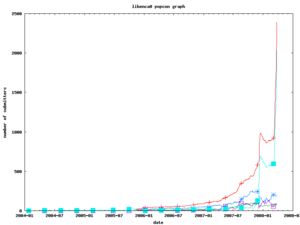Okay I did thing I considered already for several months - I decided to quit my current job at SYSGO, make one month holidays in summer and find some new job meanwhile. So I'm looking forward to free August, which I will probably spend travelling somewhere :-).
This brought up again question whether to go or not to go to this year DebConf. The only problem with this is distance - flight to Buenos Aires will be something around 2000 USD and it means lot of money for me. I applied for sponsorship for half of the price (well I'm not sure if I can really pay the other half, but I would feel really bad for asking that much money) and let's see how it turns out. On the other side, I'd love to visit Argentina, but that would probably require much more time and money. Let's see how it all turns out, there is still time to decision...
PS: If you have some interesting job offer, just contact me at michal@cihar.com.
